Poetry of Kim Jong-gil’s Life, A Black Kite
▶ ■ 특별서평
A Black Kite has 50 some poems selected from his poet’s career. He and Brother Anthony of Taize, translator, must have chosen these poems together from his three poetry books in Korean. His poems possess the elegant simplicity and the emotional complexity with intellectual power. Most of his poems came from his daily life.
His best poems known were Spring Mud, Christmas, Lonely Height, and A Black Kite. His poems confirm that he is a modernist and an imagist from his early exposure to traditional sijo poetry. He is a unique produce of Andong, his hometown and the birthplace of the so-called Youngnam School, starting Yi Toege to Yoo Sung-ryong, down to Yi Yuksa and many other patriots during the Japanese colonial era. As a matter of fact, he learned the Chinese classic under his great grandpa’s teaching during his early childhood. In a sense, he was the last Confucian modern imagist. He was well educated in Chinese classic before he learned Korean language and literature. Therefore, he could be the best scholar who knew the East and the West.
A Black Kite is a metaphor of his Andong Sunbi culture. Sunbi is not easily translatable into English. Sunbi does not compromise his belief and sense of justice for fame, power and money, negating the factionalism or factional interests over the public or national interest. Yoo Sung-ryong , the prime minister of King Sunjo’s royal court who managed the seven-year Imjin War in the 16th century, was the best example of the Youngnam School and Sunbi Culture. Andong made an image of Sunbi, and a black kite is a good metaphor of his town. There are many kinds of black kites in this world. The Korean black kite is different from the American one. There are also several different looks of black kites in different states of the United States.
However, many Korean people read and know his poem, Christmas, inscribed in a decent stone next to the Seoul City Hall. Whenever I go to the city hall, I looked for the Christmas stone to read his Christmas.
Beside a glowing charcoal fire
In a dark room, all alone,
My elderly grandmother
Was keeping watch over a pitifully fading young life.
At last Father returned home through the snow
Bringing medicine;
Ah, those red cornelian cherries
Father had picked after plowing through the snow…
I was a baby animal,
My fever flushed cheeks being silently rubbed
With the cool hem of young Father’s coat.
From time to time snow beat at the back door.
I have a feeling that that evening was Christmas Eve.
And suddenly I have reached the age
My father was then.
That being something irrecoverable from long ago, in a town
With Christmas drawing near
Those welcome memories from the past come dropping down.
If I suddenly feel Father’s cool coat hem
On my sorrowful thirty-year-old brow
Is that because the red cornelian cherries picked in the snow
Are still flowing, melted, in my blood?
From this poem, a young father who has collected cornelian cherries for his young son’s Oriental medicine in snowy winter contrasts with a young boy reaching his father’s age who is remembering that night. The poet declared that could be Christmas Eve. This Christmas shows a good father-son relationship in the Christmas setting. His parents passed away in his early age and he was raised and educated by his grandparents and great-grand parents in old Confucian tradition. Christmas to a Confucian scholar may offer a special meaning to all readers in Korea and elsewhere.
Many poems in this book were nostalgia to his home town and temples and mountains in Korea, and cities and people he visited and met in foreign countries. His poems such as Niagara, In Manhattan, At Cambridge, in Kyoto, Suez Canal, Miss Hassan, To Seamus Heaney, Beholding Tai-shan, and Mediterranean Observations presented his scholar-poet life. He expanded his friendships to many prominent poets and writers.
A couple of poems dedicated to Poet Kim Chun-su in intensive care unit and Poet Park Che-sam at his funeral touched hearts of readers with his warm friendship and humanity to fellow poets. Kim translated the two friends’ major poems into English.
A great majority of poems in this volume were translated by Brother Anthony of Taize, highly esteemed translator. Some were Kim’s own.
I cherish my memories of Kim and will remember him with this poetry book long.
<By Yearn Hong Choi>
스마터리빙
more [ 건강]
[ 건강]이제 혈관 건강도 챙기자!
[현대해운]우리 눈에 보이지 않기 때문에 혈관 건강을 챙기는 것은 결코 쉽지 않은데요. 여러분은 혈관 건강을 유지하기 위해 어떤 노력을 하시나요?
 [ 건강]
[ 건강]내 몸이 건강해지는 과일궁합
 [ 라이프]
[ 라이프]벌레야 물럿거라! 천연 해충제 만들기
 [ 건강]
[ 건강]혈압 낮추는데 좋은 식품
[현대해운]혈관 건강은 주로 노화가 진행되면서 지켜야 할 문제라고 인식되어 왔습니다. 최근 생활 패턴과 식생활의 변화로 혈관의 노화 진행이 빨라지고
사람·사람들
more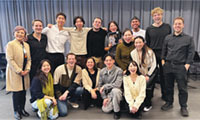
창작 뮤지컬 ‘도산’ 웍샵
창작 뮤지컬 ‘도산’이 뉴욕 맨해튼에서 미국배우조합 리딩 웍샵을 성공적으로 마쳤다. LA 무대예술인그룹 시선(대표 클라라 신)이 제작한 이 작…
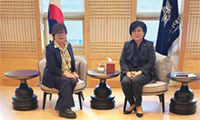
“한국어 교육 확산 협력”
한국어진흥재단(이사장 모니카 류)이 숙명여대(총장 문시연)와 한국어 교육 확산을 위한 협력에 나선다. 한국어진흥재단의 모니카 류 이사장은 지난…
송년행사 시즌 ‘돌입’ 12월 첫 주부터 본격
추수감사절 연휴를 기점으로 남가주 한인사회가 본격적인 송년행사 시즌에 돌입한다. 한 해를 마무리하고 새해를 준비하기 위한 각 단체·동문회의 연…
KYCC·VWKC·주민의회 등 합동 타운 대청소 …
한인타운청소년회관(KYCC)과 헤더 허트 시의원(LA 10지구) 사무실, 그리고 행사에는 윌셔 한인타운 커뮤니티 목소리(VWKC), 내셔널 유…
ROTC 남가주 동지회 골프 모임
ROTC 남가주 동지회(회장 이창훈)는 지난 22일 라미라다 골프코스에서 골프 모임을 열었다. 이날 행사에는 30여 명이 참석해 라운딩을 함께…
많이 본 기사
- 추수감사절 ‘포식’, 심장에는 위험 신호 될 수 있다
- 인간의 경쟁자 될까, 든든한 동료 될까… ‘휴머노이드의 진화’
- 이민 구금자수 역대 최다… 단순 체류위반 20배 폭증
- 한인 2세 지나 권씨 주정부 장관에
- 이병헌, 레오나르도 디카프리오·티모시 샬라메와 나란히..美시상식 후보
- 유동근♥전인화 CEO 딸, 방송 최초 출연.. “미모? 공들인 얼굴”
- 트럼프 “백악관 앞 총격은 테러”… 반이민 강화 고삐
- 국민연금 증명 편리해진다 온라인 아포스티유 발급
- JP모건, ‘S&P 500 목표가 8,000P’
- BTS 정국, 솔로곡 스포티파이 누적 재생수 100억회 달성
- 극단적 선택 시도 고백 후..MC몽, 이번엔 사기 피해 당부
- 연말을 향해 달리는 불빛의 궤적
- 이용대, ♥윤채경 열애설 질문에 당황.. “넘어가 달라”
- 경찰관이 근무 중 도둑질 차량 수색하며 현금 꿀꺽
- 401K 비차별 테스트 준비
- 홍콩 77년래 최악 화재… ‘대나무 비계’타고 불길 번졌다
- 오바마케어 보조금 연장 이뤄져야
- 집값 상승에 ‘투자 대이동’… 중산층 절반 이상이 ‘주식’
- ‘이강인 교체 투입’ PSG, 토트넘 5-3 격파
- 아마존, 사기 급증 경고 연말맞아 회사 사칭 극성
- LA 주차위반 단속 강화… 티켓 발부… 1
- 일주일 강수량이 무려 1.8미터… 동남아 ‘물폭탄 비명’
- [역사 속 하루] 태즈메이니아 섬 발견, 비극의 시작
- 리듬과 시조, 미래의 언어
- LA 주민 3분의 2 “카운티 잘못된 방향 간다”
- 겨울철 심장 관리… 오메가3·크릴오일 질환 예방 효과 ‘글쎄’
- 추수감사절 연휴 맞아 LA 오토쇼 관람 인기
- [이런 일도] ‘인간 세탁기’ 나온다
- 개인적 상처를 판타지로 승화시킨 감독의 용기
- ‘중견 작가들이 선보이는 따뜻한 감성’
- 샤토갤러리 ‘팝업 X-마스 마켓’
- 증시, 연휴 휴장·반장 오늘 오후 1시까지만
- ‘도우인 메이크업(중국식 메이크업)’ 붐 타고… 동남아·일본 등 폭풍성장
- [마크 A. 시쎈 칼럼] 트럼프 승리를 파괴하는 백인 우월주의자들
- 트럼프 행정부, 올해 연방 공무원 32만명 감원
- 송성문 행선지로 다저스·샌디에고 예상
- UC, 등록금 인상 자제 노력 더 해야한다
- ‘오픈AI’ 분석 파트너사 해킹 당해
- “고용 소폭 감소… 노동수요 약화”
- “반갑다 집값 둔화”… 5개월 연속 90만달러 밑돌아
- “캠벨수프 소비자는 빈곤층” 발언 논란
- [한국춘추] 감사의 힘
- [전익환 프로의 골프교실] 백 스윙의 몸 동작
- [주말 뭐 볼까 OTT] ‘진정한 사랑은 자본주의가 빼앗을 수 없다’… 사랑의 진짜 가치는?
- 한진그룹, 미군 참전용사단체 후원
- 트럼프 관세발 물가… ‘정책 유턴’ 신호탄?
- ‘5년내 유료구독자 2억2,000만명’
- [만화경] AI 거품론과 ‘그린스펀 오판’
- 제주에서 수출한 일본판 ‘올레’… 1300년 전 길을 걷다
- [LA 왕발] “따뜻하고 든든한 한 끼… 최고의 맛”
1/5지식톡

-
 테슬라 자동차 시트커버 장착
0
테슬라 자동차 시트커버 장착
0테슬라 시트커버, 사놓고 아직 못 씌우셨죠?장착이 생각보다 쉽지 않습니다.20년 경력 전문가에게 맡기세요 — 깔끔하고 딱 맞게 장착해드립니다!장착비용:앞좌석: $40뒷좌석: $60앞·뒷좌석 …
-
 식당용 부탄가스
0
식당용 부탄가스
0식당용 부탄가스 홀세일 합니다 로스앤젤레스 다운타운 픽업 가능 안녕 하세요?강아지 & 고양이 모든 애완동물 / 반려동물 식품 & 모든 애완동물/반려동물 관련 제품들 전문적으로 홀세일/취급하는 회사 입니다 100% …
-
 ACSL 국제 컴퓨터 과학 대회, …
0
ACSL 국제 컴퓨터 과학 대회, …
0웹사이트 : www.eduspot.co.kr 카카오톡 상담하기 : https://pf.kakao.com/_BEQWxb블로그 : https://blog.naver.com/eduspotmain안녕하세요, 에듀스팟입니다…
-
 바디프렌드 안마의자 창고 리퍼브 세…
0
바디프렌드 안마의자 창고 리퍼브 세…
0거의 새제품급 리퍼브 안마의자 대방출 한다고 합니다!8월 23일(토)…24일(일) 단 이틀!특가 판매가Famille: $500 ~ $1,000Falcon: $1,500 ~ $2,500픽업 & 배송직접 픽업 가능LA…
-
 바디프렌드 안마의자 창고 리퍼브 세…
0
바디프렌드 안마의자 창고 리퍼브 세…
0거의 새제품급 리퍼브 안마의자 대방출 한다고 합니다!8월 23일(토)…24일(일) 단 이틀!특가 판매가Famille: $500 ~ $1,000Falcon: $1,500 ~ $2,500픽업 & 배송직접 픽업 가능LA…
케이타운 1번가
오피니언

오바마케어 보조금 연장 이뤄져야

UC, 등록금 인상 자제 노력 더 해야한다
 마크 A. 시쎈 / 워싱턴포스트 칼럼니스트
마크 A. 시쎈 / 워싱턴포스트 칼럼니스트 [마크 A. 시쎈 칼럼] 트럼프 승리를 파괴하는 백인 우월주의자들
 유경재 나성북부교회 담임목사
유경재 나성북부교회 담임목사 [한국춘추] 감사의 힘
 김인자 시인·수필가
김인자 시인·수필가 [금요단상] 장미의 이름, 진리의 이름
 최호근 / 고려대 사학과 교수
최호근 / 고려대 사학과 교수 [역사 속 하루] 태즈메이니아 섬 발견, 비극의 시작
 최형욱 / 서울경제 기자
최형욱 / 서울경제 기자 [만화경] AI 거품론과 ‘그린스펀 오판’
 조재성 LA 포럼 회장·도시비평가
조재성 LA 포럼 회장·도시비평가 [조재성 박사의 두 도시 이야기] 코리아타운, 불완전함의 아름다움
 김재천 서강대 국제대학원 교수
김재천 서강대 국제대학원 교수 [김재천 칼럼] 경제로 안보를 사는 시대
1/3지사별 뉴스

정혜선한국전통예술원 ‘아리랑-동방의 울림’공연 성황
정혜선한국전통예술원의 특별공연 ‘아리랑-동방의 울림’(Arirang-Echoes of the East)이 지난 23일 전석 매진속에 뉴저지 포…
오바마케어 보조금 2년 더 연장되나

“에어프레미아, 내년 3월 워싱턴 취항”
신생 항공사인 에어프레미아(Air Premia, 사진)가 내년 3월부터 인천과 워싱턴 덜레스 공항을 정기운항할 것으로 알려져 관심이 쏠린다.한…
마이클 박 연방 판사 ‘유력한 대법관 후보자로 급부상’

트럼프 “총격당한 주방위군 병사 2명 중 1명 사망”
도널드 트럼프 대통령은 27일 아프가니스탄 출신 이민자로부터 전날 워싱턴DC의 백악관 인근에서 총격을 당한 주방위군 병사 2명 중 1명이 사망…
피아니스트 조성진, 내년 1월 SF에 온다

오늘 하루 이 창 열지 않음 닫기 




























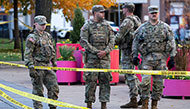





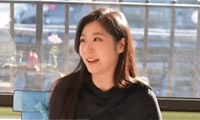
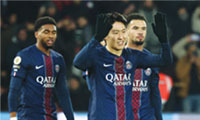
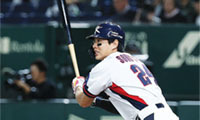













.png)


댓글 안에 당신의 성숙함도 담아 주세요.
'오늘의 한마디'는 기사에 대하여 자신의 생각을 말하고 남의 생각을 들으며 서로 다양한 의견을 나누는 공간입니다. 그러나 간혹 불건전한 내용을 올리시는 분들이 계셔서 건전한 인터넷문화 정착을 위해 아래와 같은 운영원칙을 적용합니다.
자체 모니터링을 통해 아래에 해당하는 내용이 포함된 댓글이 발견되면 예고없이 삭제 조치를 하겠습니다.
불건전한 댓글을 올리거나, 이름에 비속어 및 상대방의 불쾌감을 주는 단어를 사용, 유명인 또는 특정 일반인을 사칭하는 경우 이용에 대한 차단 제재를 받을 수 있습니다. 차단될 경우, 일주일간 댓글을 달수 없게 됩니다.
명예훼손, 개인정보 유출, 욕설 등 법률에 위반되는 댓글은 관계 법령에 의거 민형사상 처벌을 받을 수 있으니 이용에 주의를 부탁드립니다.
Close
x